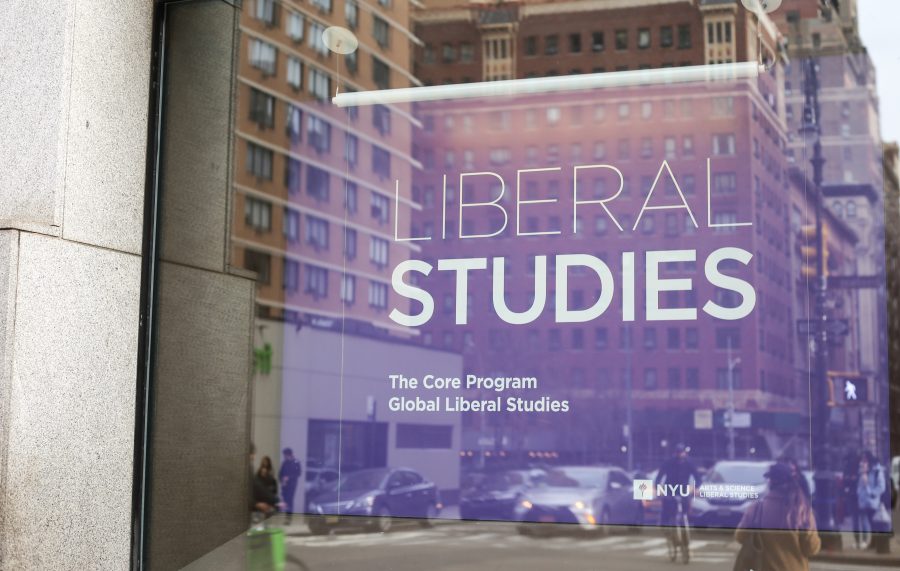Some Liberal Studies professors are looking to unionize, citing lower pay and a lack of resources and job security.
“Liberal Studies faculty are regarded as second class faculty,” said one LS professor, who spoke to WSN on the condition of anonymity due to fear of retaliation by the university.
Founded in 1972, LS was initially a program created for students who may have difficulty keeping up with the academic demands of another NYU school. The two-year program emphasizes an interdisciplinary curriculum and small, seminar-style classes. At the end of their sophomore year, LS students transfer into the school of their chosen major. Since its inception, LS has grown into the second-largest undergraduate program and no longer has any specific admissions criteria.
However, some LS faculty believe that NYU has failed to keep up with the program’s transformation and does not allocate it sufficient resources.
“Professors in CAS have much more access to resources in terms of research, funding and teaching development funding,” the anonymous professor said. “They have access to paid sabbaticals, so they can develop their research in particular […] so there’s a lot of opportunities in the university that Liberal Studies faculty don’t have.”
Multiple professors who spoke to WSN said unionization efforts are in progress within LS due to some of these complaints. Job stability is another area the anonymous professor pointed to — no LS professors are tenured, and some are employed semester-by-semester.
David Lamoureux, an adjunct instructor teaching economics, is one of many hired semester to semester. Generally, he is happy with LS but did say the lack of job security is stressful.
“I have been rehired every semester, but there’s no guarantee that will happen, so that’s unsettling,” Lamoureux said. “More secure employment is preferable.”
Unsurprisingly, Lamoureux is far from the only one in the department with this preference.
“[LS professors] want the criteria for retention to be clearer so it’s not just some political decision in a meeting,” the anonymous professor said. “If you do certain things, you will be retained; and if you do other things, you won’t. They want clarity around retention.”
LS professors also say the length of retention is too short. Non-adjunct LS professors are normally recruited on a three-year contract and then on rolling five-year contracts. These rolling contracts have caused some to feel like their positions are subject to volatility.
“One of the things LS faculty are kind of keen to change is that they want to be retained on longer contracts, and that’s one of the reasons why unionization is going on,” the anonymous professor said. “It’s because the clinical faculty want to be retained on longer contracts.”
LS professors are also paid much less than other NYU professors. Unlike other faculty’s salaries, LS professors’ salaries are capped at a certain amount.
WSN obtained a report done by four LS professors last spring called the Salary Subcommittee Report that interviewed full faculty members anonymously. It confirmed that LS professors receive lower salaries — the average salary of a male, associate tenure-eligible professor is $126,681, while the average salary of a male, associate LS professor is $76,687.
The average salary of a male, full tenure-eligible professor is $202,221, while the average salary for a male, full LS professor is $83,212.
“Considering my publications, teaching, years in the program and credentials, I make considerably less than colleagues at other institutions,” one LS professor quoted in the report said. “Especially when you adjust for the cost of living in [New York City].”
Another professor quoted in the report said the lower pay made them feel that they were considered to be less successful.
“My salary indicates that the university thinks of contract faculty as ‘failed academics,’ a phrase I have actually heard used by senior administration to describe contract faculty,” the professor said.
University spokesperson John Beckman said there is no prohibition on contract faculty, including LS professors, applying for tenure-track positions. Additionally, Beckman said the comparison of LS professors’ salary to that of other professors is a comparison “one cannot make.”
“The LS faculty are highly respected members of NYU faculty, and the university recognizes the importance of the work they do and the contributions they make to the educational enterprise,” Beckman said in a statement to WSN. “[But the] academic labor market is highly complex and variable. Across the higher education sector, there is significant variation between universities, between schools, and between disciplines.”
Lower salaries have forced 43% of responders to the report’s survey to take up a second job or extra work in order to supplement their salaries. In the report, professors claimed this affects the quality of LS curriculum.
“It takes energy away from my own scholarship and my responsibilities at Liberal Studies,” one professor said. “Teaching 3-3 every year [three courses in both the fall and spring semesters] — I’ve never had a semester release — is a burnout risk as it is, and additional work doesn’t help. I’m living extremely conservatively.”
This lower salary has caused many LS professors to express that they feel exploited and unfairly compensated for their labor.
“Though we think of ourselves as smart, in reality, we must be stupid to remain in LS,” one LS professor reported. “We are treated like 3rd class faculty (after tenured, and tenure track professors), work harder than most faculty at NYU, and are paid less.”
A version of this article appeared in the Monday, October 27, 2019, print edition. Email Emily Dai at [email protected].






















































































































































